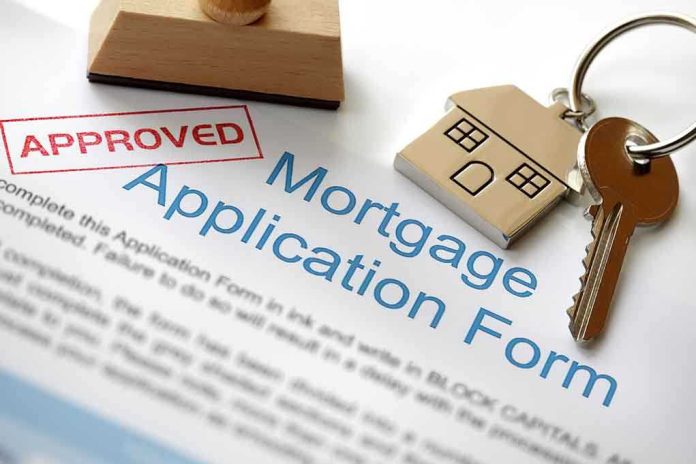
In Chicago’s Lawndale neighborhood, hundreds of property tax bills went up in flames—not as an act of recklessness, but as a desperate plea for justice from homeowners who feel abandoned by a system that’s supposed to serve them, not ruin them.
Story Snapshot
- Chicago homeowners lit their property tax bills on fire in protest, demanding transparency and relief from skyrocketing taxes.
- Community leaders drew parallels to the Boston Tea Party, framing the bonfire as a pivotal moment in local activism.
- The event spotlighted long-standing grievances over opaque tax assessments, gentrification, and lack of neighborhood investment.
- Calls intensified for legislative reforms modeled after California’s Prop 13, aiming to cap property taxes and annual increases.
Bonfire as Protest: The Night Lawndale Fought Back
November 15, 2025, marked a turning point for Lawndale, a neighborhood familiar with hardship but unaccustomed to surrender. At Harmony Community Church, residents gathered—some clutching bills that had jumped by $1,000 in a single year—to publicly burn their property tax statements. The spectacle wasn’t just cathartic; it was strategic. By invoking the Boston Tea Party, organizers like Dr. Richard Townsell signaled this was no ordinary protest. It was a declaration: the people of Lawndale would not quietly accept a tax system they perceive as both arbitrary and unjust.
Organizers, including the Lawndale Christian Development Corporation, gave voice to homeowners on the edge. Some had spent years watching city services dwindle even as their bills soared. Others spoke of the threat of losing generational homes, a loss that would unravel the social fabric of a community already frayed by decades of disinvestment. The message was clear—tax hikes without visible neighborhood improvement would no longer go unchallenged.
Behind the Bills: A System Under Fire
Chicago’s property tax system, infamous for its complexity and lack of transparency, has long been a source of frustration. Lawndale’s experience is particularly acute: assessments can appear arbitrary, and the proliferation of Tax Increment Financing (TIF) districts often diverts funds away from the very neighborhoods paying the highest share. Residents see little return for their rising contributions, fueling suspicions that gentrification—not community reinvestment—is the real motive behind the hikes. The bonfire wasn’t just about numbers; it was a protest against a system that too often feels rigged against the working class and minorities.
Chicago homeowners demand answers, speak out at 'property tax bonfire' https://t.co/qNScfMpsP7 #FoxNews
— Rob Beto Aragon🇺🇸🇮🇱🇻🇦 (@gopwillrise) November 17, 2025
Community leaders pressed elected officials and the Cook County Treasurer’s office for answers. While Treasurer Maria Pappas offered practical relief—new payment plans stretching as long as 13 months—the crowd’s appetite was for structural change, not temporary fixes. The demand resonated beyond Lawndale, tapping into a citywide anxiety: if property taxes continue their upward trajectory, who will be left to call Chicago home?
Legislative Reform on the Horizon?
Calls for a Chicago or Illinois version of California’s Prop 13—a law that caps property taxes and limits annual increases—echoed throughout the event. Advocates argue such caps are necessary to prevent displacement and restore trust in local government. Critics, however, warn that strict limits could undermine funding for essential public services, repeating a decades-old national debate. The involvement of state legislators and county officials at the bonfire event suggests that this grassroots movement could soon force policy onto center stage.
Lawndale’s protest has catalyzed renewed scrutiny of TIF districts and the city’s assessment process. Some officials maintain that higher taxes are the price for investment, but many residents counter that they see little actual benefit. The tension between funding public goods and protecting homeowners from financial ruin remains unresolved, but the bonfire has ensured it can no longer be ignored. With neighborhood organizing gaining momentum, the city faces mounting pressure to balance fiscal needs with fairness and transparency.
Sources:
Chicago homeowners speak out on new property tax increases at bonfire on West Side




